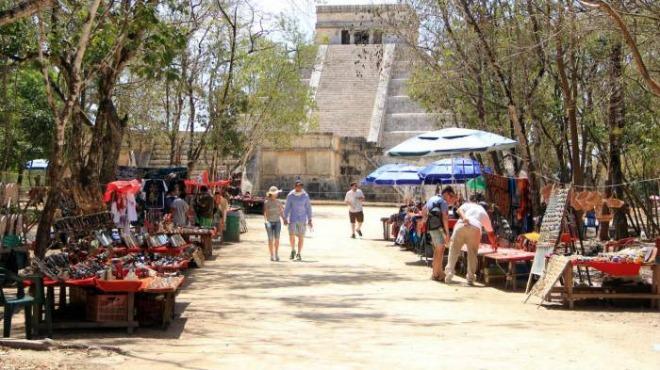Yucatan state government could soon announce a lobbying agreement with tourism service providers to evict the crafts vendors and hawkers who have occupied the archaeological zone of Chichen Itza for more than a decade.
Government and business sources confirmed that the administration headed by Gov. Rolando Zapata has established a mechanism to expel the more than 600 vendors that hold the most visited archaeological zone in Mexico as a preserve, according to La Revista Peninsular.
The sources consulted indicated that everything is ready to remove the “artisans” who for more than 10 years have invaded access areas and who have refused to leave, claiming to have preference over the UNESCO world heritage site.
The three levels of government agreed to a mechanism to relocate traders who daily install and resell merchandise in the archaeological zone, and who have been denounced by tourists for harassment, price abuse and fraud in pieces, which are sometimes made with cheap materials, but offered at silver value.
The tourism sector has repeatedly demanded action from the state and federal authorities over the condition of the street vendors, the problems they cause to tourists and the abuse and cases of traffic congestion.
Both sources said that the state government agreed with the National Institute of Anthropology and History (INAH), responsible for the archaeological zone, a mechanism for the total withdrawal of street vendors and their possible relocation, outside the archaeological zone.
The archaeological zone of Chichen Itza, considered one of the seven wonders of the modern world, receives annually more than two million visitors and leaves considerable economic impact, for both the state and federal government, however, minimum resources to the municipality of Tinum , where this archaeological reference is located geographically.
It transpired that, among the agreements, the construction of a new tourist hostel is considered, since the present one is insufficient and the volume of tourists who arrive at this site have surpassed the conditions for its attention and security mechanisms.
Source: Revista Peninsular


